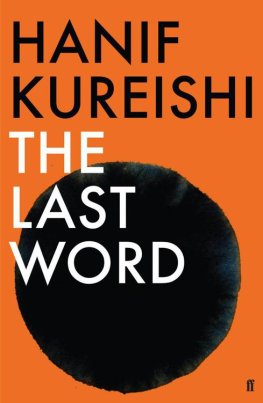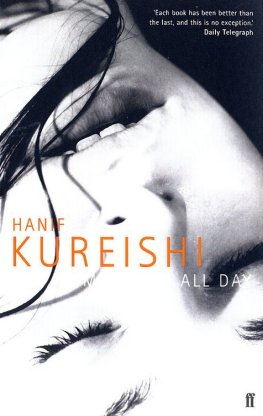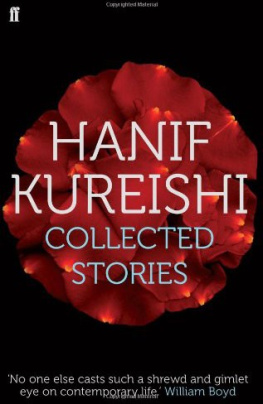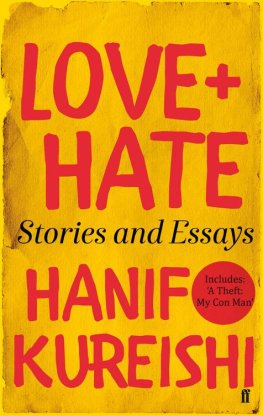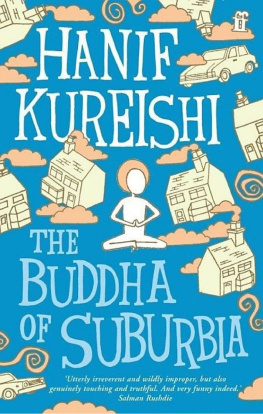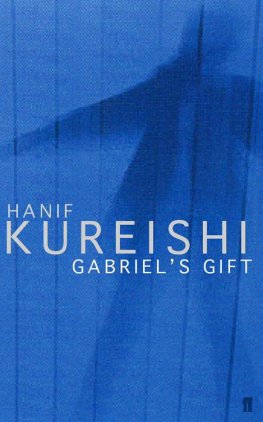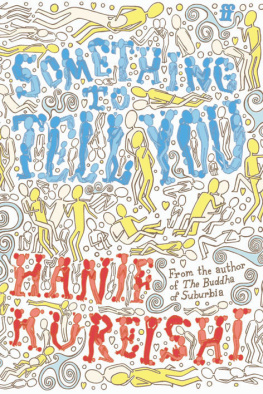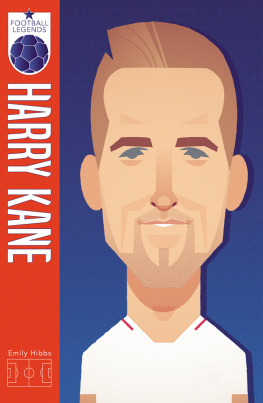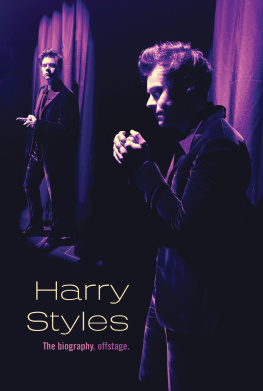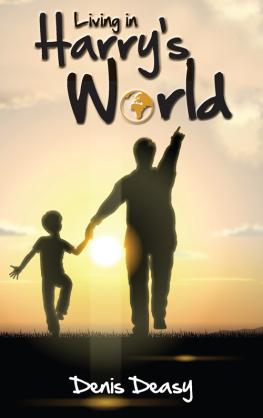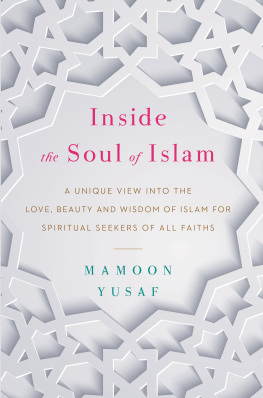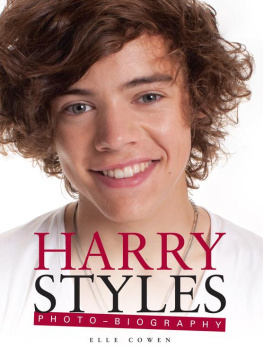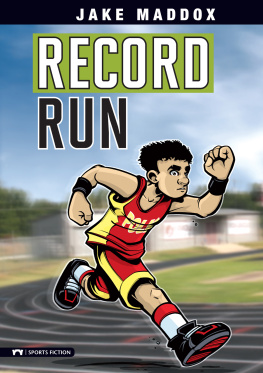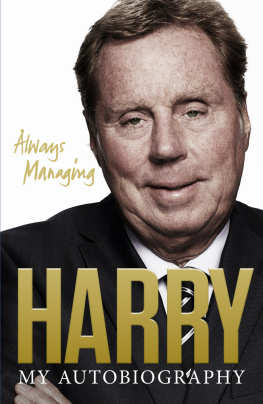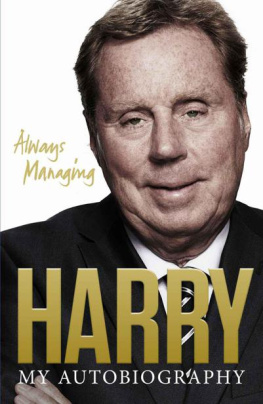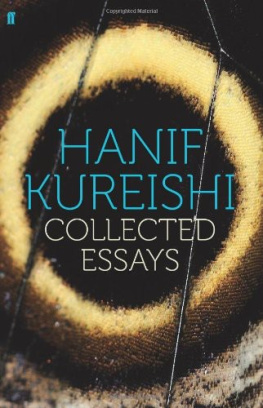Hanif Kureishi
The Last Word
Harry Johnson gazed out of the window of the train at the English countryside and thought that not a moment passed when someone wasnt telling a story. And, if his luck held for the rest of the day, Harry was about to be employed to tell the story of the man he was going to visit. Indeed, he had been chosen to tell the whole story of this important man, this significant artist. How, he wondered, with a shudder, did you begin to do that? Where would you start, and how would the story, which was still being lived, end? More importantly, was he, Harry, capable of such a task?
Peaceful England, untouched by war, revolution, famine, ethnic or religious disturbance. Yet if the newspapers were correct, Britain was an overcrowded little island, teeming with busy immigrants, many clinging to the edges of the country, as on a small boat about to capsize. Not only that, thousands of asylum seekers and refugees, desperate to escape disturbance in the rest of the chaotic world, were attempting to cross the border. Some were packed in lorries, or hung from the undercarriages of trains; many were tiptoeing across the English Channel on tightropes slung across the sea, while others were fired from cannons based in Boulogne. Ghosts had it easy. Meanwhile apparently, since the financial crash, everyone onboard the country was so close together and claustrophobic they were beginning to turn on one another like trapped animals. With the coming scarcity few jobs, reduced pensions, and meagre social security peoples lives would deteriorate. The post-war safety Harry and his family had grown up in was gone. Yet, to Harry now, it seemed as if the government was deliberately injecting a strong shot of anxiety into the body politic, because all he could see was a green and pleasant England: healthy cattle, neat fields, trimmed trees, bubbling streams, and the shining, early spring sky above. It didnt even look as though you could get a curry for miles.
There was a whoosh, and beer spattered his face. He turned his head. Rob Deveraux, sitting opposite Harry and cracking open another tin, was a respected and innovative publisher. He had approached Harry with the idea of commissioning him to write a biography of the distinguished writer, Indian-born Mamoon Azam, a novelist, essayist and playwright Harry had admired since he was a teenage book fiend, a nerdy connoisseur of sentences, a kid for whom writers were gods, heroes, rock stars. Harry was immediately responsive and excited. After years of study and obedience, things were turning good for him, as his teachers had predicted if he concentrated his thoughts and zipped his fly and lip. This was his break; he could have wept with relief and excitement.
He deserved it, he reckoned. A couple of years before, in his late twenties, Harry had published a well-received biography of Nehru containing much new material, and although the familiar story had now, in the modern manner, to be lightly spiced with interracial copulation, buggery, alcoholism and anorexia, the work was considered, on the whole, to be illuminating. Even the Indians liked it. For Harry it had been homework. He was reviewing books and teaching now, while looking for a new project to invest his creative passion, energy and commitment in; something, he hoped, that would make his name, launching him into the public world and a rosy future.
Today, on a bright Sunday morning, Harry and Rob were on the train to Taunton to visit Mamoon at the house where the legendary writer had lived for most of his adult life, sharing it now with his second wife, Liana Luccioni, a spirited Italian woman in her early fifties. The world from the window his England would have kept Harry calm and easy, except that Rob, like a boxing coach, insisted on coaxing and goading his boy in preparation for the fight ahead.
Rob was explaining that it was both an advantage and a nuisance writing about someone who was alive. The subject himself could help you, he said, as Harry dabbed beer from his face with his handkerchief. The past might take on new tones as the subject looked back and it was Harrys job to inspire Mamoon to look back. Rob had no doubt that Mamoon would help Harry, since Mamoon had finally recognised that the book was becoming essential. Liana was proving to be extravagant, if not more expensive and, indeed, explosive than any woman Mamoon had experienced before. Rob had said it was as if Gandhi had married Shirley Bassey and theyd gone to live in Ambridge.
Mamoon had been much respected by the literary world, as well by as the right-wing newspapers. He was, at last, a writer from the Indian subcontinent they could like, someone who thought domination, particularly by the educated, informed and intelligent people, oddly, who resembled himself was preferable to universal stupidity, or even democracy.
But being too cerebral, unyielding and harrowing to be widely read, Mamoon was becoming financially undone; despite the praise and the prizes, he was in fiscal turnaround. Currently he was in the process of selling his archive to an American university. Before it also became necessary for him to remortgage his house, his wife and his agent had agreed that the best way to perk up his quiet career Mamoon had become the sort of writer of whom people asked Is he still alive, do you know? was for a controversial new biography to be published with, on the cover, the subject as an irresistibly handsome and dangerous young man. The sharp, memorable image would be as important as the words: think Kafka, Greene, Beckett, writers whose taciturnity never stood in the way of a hot, moody photo. This, then, was the book Harry would write. The biography would be an event, a big bang, accompanied, of course, by a television documentary, interviews, a reading tour, and the reissuing of Mamoons books in forty languages.
On the other hand, continued Rob, the fact the author was alive could inhibit a biographer. Rob had met the man about a dozen times; and he said that Mamoon, to his credit, was more Norman Mailer than E. M. Forster. Inhibition, Rob reckoned, was something Harry needed none of here. It wouldnt suit the subject.
On his side, Harry considered Rob to be more of a Norman Mailer than Mamoon, who had seemed restrained and dignified on the one occasion Harry had met him. Rob was a dishevelled unshaven brilliant maverick, who usually smelled of alcohol. Today he had turned up actually drunk and began drinking beer the moment they got on the train while eating crisps continuously, bits of which adhered to his face and clothes like flakes of dandruff. Rob considered writing a form of extreme combat, and humanitys saving grace. For him, the writer should be the very devil, a disturber of dreams and wrecker of fatuous utopias, the bringer-in of reality, and rival of God in his wish to make worlds.
Now Harry nodded gravely across the table at Rob, as he always did; he didnt want to betray any alarm.
If Harry thought of himself as a cautious if not conservative person, Rob appeared to encourage his authors towards pugnacity, dissipation and authenticity for fear, some thought, that the act and art of writing, or even editing, might appear artistic, feminine, nancy, or, possibly, gay. Never mind Mamoon, Harry had heard numerous tales of Robs sociopathic tendencies. He didnt go into the office until five in the afternoon, though he would stay there all night, editing, phoning and working, perhaps popping into Soho. He had married, not long ago, but appeared to have forgotten that wedlock was a continuous state rather than a one-off event. He slept in different places, often in some discomfort and with a book over his face, while appearing to inhabit a time zone that collapsed and expanded according to need rather than the clock, which he considered to be fascist. If he became bored by someone, he would turn away, or even slap them. He would cut his writers work arbitrarily, or change the title, without informing them.

